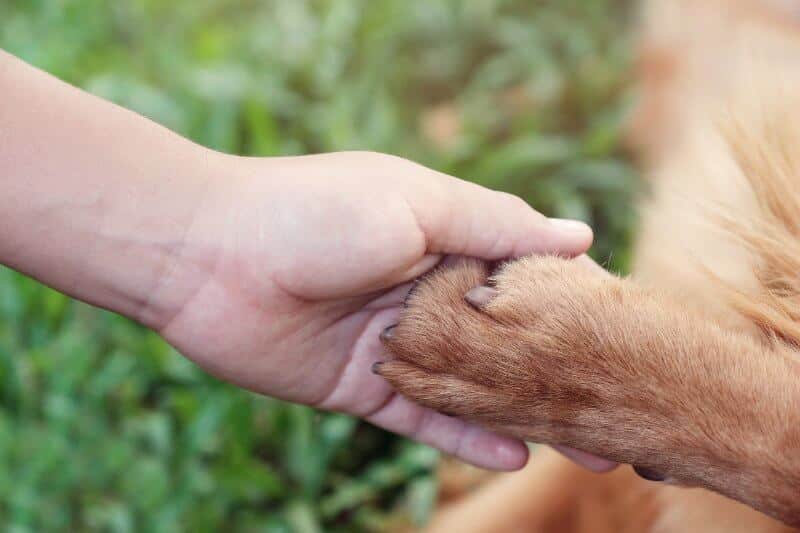Recently, The Kennel Club (England) (TKC) asked for Scottish dog owners to respond to a consultation launched by Maurice Golden, a member of the Scottish Parliament for North East Scotland, to support the introduction of a specific criminal offense for dog theft. A consultation is an opportunity for the public to comment on an idea prior to the idea becoming a bill filed in Parliament. The proposed Dog “Abduction” (Scotland) Bill would create a new statutory offense for dog theft and other situations where a dog is taken or kept without lawful authority.
The concerns justifying the proposal are similar to the American Kennel Club’s (AKC) public warnings about the rise in pet thefts. More than ever, AKC is providing advice and education about ways dog owners can protect their property (including their dogs), and advocating for increased enforcement of current laws that criminally punish thieves and others who treat animals cruelly.
So, the Scottish proposal sounds reasonable and in line with AKC’s values then, right?
Not exactly.
AKC is concerned about the philosophical, political, and legal impacts of the animal rights movement, and the myriad of guises in which it appears, both in the US and abroad. Animal Rights is a radical philosophy that holds that humans should not use or own animals in any way—as companions, as is the case with our beloved dogs; or as food for the world, as in the case of livestock—and seeks to make that agenda a reality by utilizing media, legislation, and litigation to incrementally change perceptions about the human use of animals. The ultimate goal of animal rights supporters is not to improve the wellbeing of animals, but to stop their breeding by, and interaction with, humans.
In the past few years, several Western European countries have taken steps to implement laws and rules that, whether knowingly or unknowingly, are tactics promoted by animal rights extremists to incrementally limit the breeding and owning of purebred dogs. One tactic is to veil their anti-breeding schemes as concerns for animal health. When animal rights legislation becomes law, it can place national kennel clubs in a no-win situation: either change their policies to accommodate extremist laws or face the consequences and penalties of violating the new national laws.
For example, in 2020, the Dutch Kennel Club (RvB) began a policy of limiting the registration of certain breeds, citing health concerns related to muzzle length. It even went on to encourage crossbreeding to increase muzzle length and offered to allow for future generations descended from those mixes to be registered as purebred. AKC urged the RvB “to continue to aggressively work against overt attempts to control breed type and to continue to pursue education and scientific discussion of thoughtful ways to address health issues within a breed in a way that protects and preserves the essence of the breed.”
In Norway, a July 2021 vote by parliament amended the breeding clause of the country’s Animal Welfare Act to ensure that the Norwegian Kennel Club (NKK), breeder groups, and private breeders were all legally responsible for breeding healthy, fit animals. (The underlying legislation that emphasized health testing had many similarities to proposals introduced in the U.S. Congress in 2021-2022, including H.R. 2840/S.1385, the so-called “Puppy Protection Act”.)
Seven months after the measure passed in Norway, a district court in Oslo, composed of a judge and two co-judges (one a veterinarian, the other a geneticist) unanimously concluded that Bulldogs and Cavalier King Charles Spaniels have such major health challenges that any further breeding of them is in violation of the new law, and ordered that the breeding of both breeds in Norway must stop immediately.
The case was brought by the Norwegian Society for Protection of Animals, an animal rights group, against the NKK, the Norwegian Cavalier Club, the Norwegian Bulldog Club, and six breeders. In November, an appeals court affirmed the lower court’s decision as it applies to Cavalier King Charles Spaniels, but reversed the decision as it applies to Bulldogs. At time of publication, the NKK reports that it will likely further appeal to Norway’s Supreme Court.
In Germany, an Animal Welfare Ordinance that went into effect at the start of 2022 has had such a profoundly negative impact on purebred breeders and owners that it has forced the cancellation of several shows and resulted in significantly reduced entries for many others.
The German law requires every dog entered in a show to undergo a general veterinary examination to identify any visible indications of hereditary disease in advance, and a form must be submitted as a certification that the dog has no visible indications of “torture breeding.” The law also requires additional inspection of dogs of more than 40 breeds for “hidden indications” of “torture breeding.” It further bans dogs with shortened or removed whiskers from participating in shows.
The authors would be remiss not to mention the continent’s attitude of reprehension toward the animal husbandry practices of tail docking and ear cropping!
If enacted, the new Scottish proposal may prove to be the latest steps in Western Europe’s steady march toward anti-purebred dog, anti-breeder, anti-ownership policies. In addition to creating the new dog theft law, the bill would also require that a dog’s feelings be taken into account.
Animal rights activists believe that if laws recognize a dog’s sentience, then deeming it as a person under the law is sure to follow. It should be no surprise then that states and localities across the United States have not been immune from the introduction of animal rights-backed bills and ordinances that also attempt to use a dog’s purported feelings, interests, or intent as the justification for a complete change in the traditional classification of animals as property under the law.
Animal rights activists believe that if laws recognize a dog’s sentience, then deeming it as a person under the law is sure to follow. It should be no surprise then that states and localities across the United States have not been immune from the introduction of animal rights-backed bills and ordinances that also attempt to use a dog’s purported feelings, interests, or intent as the justification for a complete change in the traditional classification of animals as property under the law.
The second point of concern with the Scottish proposal lies in its apparent relationship to TKC’s position on pet thefts:
Currently, undue weighting is placed on a pet’s monetary value as opposed to their emotional worth when sentencing those guilty of pet theft. The value of a large proportion of older dogs stolen would be deemed well under £500—the monetary threshold for which an offence is considered category four—meaning that owners of such dogs are unlikely to receive the justice they deserve. As such, we are calling on the UK Government and the devolved administrations to amend sentencing provisions in order to ensure a dog’s sentience, their role within their family, and the emotional harm inflicted on pet owners who are victim to this crime are fully taken into account.
Despite currently carrying a maximum penalty of seven years’ imprisonment in England and Wales, Rt Hon. George Eustice MP—then Minister of State for the Department for Environment, Food and Rural Affairs—highlighted in 2018 that there was little evidence of the maximum sentence provisions being used and a much more lenient approach is typically pursued in cases that end up in court.
There is also little evidence of maximum sentences being handed out to dog theft criminals in Scotland and Northern Ireland. In cases where a suspect is identified and there is sufficient evidence to proceed with further action, less than 5% of cases result in a suspect being charged.
The last paragraph of the position statement is key, as it highlights that the issue is truly about a need for increased enforcement of current theft laws. Why propose new laws to tinker with how a court should determine the value of a pet and potentially impact their legal classification if the real issue is a lack of enforcement of current laws?
Practical considerations of laws being enforced are not the concern of animal rights groups, plaintiffs’ attorneys, and other groups that commonly hijack the deep emotional ties society has to its pets to justify proposing fundamental changes to laws dealing with animals.
Another trend in troublesome proposals, not as extreme as outright personhood legislation, involves (as in Scotland) how pets should be valued by courts. By extension, the introduction of legislation that allows courts to award “non-economic” damages in cases involving the negligent injury or death of a pet are increasing throughout the US. Called “non-economic damages” because they attempt to cure intangible harms, like pain and suffering that cannot be readily represented by an actual dollar amount, “non-economic” damages may traditionally be claimed only by the close family of human victims who have died or been severely injured.
On the surface, extending the availability of these damages to cases involving the injury or death of a pet may sound like a compassionate approach that simply reflects the value people place on their pets. But there’s more to it than that. Much more. Legal scholars and animal experts agree that allowing courts to assign arbitrary valuations and increasing legal financial liability will likely have many unintended consequences that can actually harm pets in the long run, including increasing costs across the board for all aspects of pet care, reducing the availability of routine and innovative veterinary care, increases in litigation, and disincentivizing free or low-cost veterinary care services.
And, if they are traditionally reserved for people, would allowing non-economic damages in pet cases be another “back door” tactic to have pets be recognized as persons? AKC believes more legislation that would permit non-economic damages in animal cases will be introduced when state legislatures begin their 2023 sessions.
Is there a better, quicker way to dissuade the ownership and humane use of animals than by promoting laws and policies that increase the costs of animal ownership?
As in Europe, schemes driven by American animal rights groups to increase the costs associated with animals are not limited to legislative efforts. A case currently pending in the U.S. Supreme Court concerns the significant cost increases in the production, distribution, and purchasing of pork that likely results from one state implementing arbitrary standards to supposedly improve animal wellbeing.
In National Pork Producers Council v. Ross, the Court is being asked to determine the constitutionality of a 2018 California ballot initiative that imposed minimum space requirements for the confinement of breeding pigs that produce uncooked pork products that are offered sale in California, even if those farmers are not located in the state. (Not surprisingly, most pig farms are not located in California.)
In addition to the important state sovereignty and interstate commerce issues at the heart of the case, the issue of increased costs of farming and distribution play an important outcome on the real impacts of the law on the public. It is worth noting that, unsurprisingly, the group behind the 2018 ballot initiative and defending it in front of the Supreme Court is among the staunchest advocates for animal rights in the United States.
Read more about the case at: https://www.votervoice.net/AKC/BlogPosts/4060
If the California law is upheld, AKC believes ramifications will include increased food costs, scarcity of animal protein food sources, and the ability of one state to dictate how residents of all other states must act if they wish to introduce an item for sale in it. It would not be just a small step toward more animal rights-entrenched policies, but a huge leap.
AKC supports the traditional legal classification and treatment of animals as legal property for a reason. For centuries, the concept of animal ownership has provided a reliable framework by which owners derive both the right and responsibility to provide care in a manner that is best for their animals, while also protecting them from appropriation by public or private entities.
Together with criminal laws prohibiting animal cruelty and dog fighting, and a multitude of civil laws and causes of action that address owners’ interests and the negligent injuring and killing of animals, these traditions have served as the foundation of a stable legal system that serves all animal owners by promoting responsible animal ownership; deterring animal abuse; and promoting innovative, affordable, and quality animal care. AKC will continued to defend against these serious threats to our beloved dogs.
Come Visit Us at the AKC National Championship
The AKC Government Relations team loves meeting with you one-on one! If you’re heading to Orlando for the AKC National Championship, please stop by the AKC Government Relations/Political Action Committee booth to meet staff and learn more about how AKC monitors legislative developments that may impact your right to own and show your dogs. Learn how we can work with you against anti-breeder/anti-dog threats in your community, and how we advocate for your interests as dog enthusiasts and responsible dog owners.
Help us fight back against animal rights agendas in the US! Please consider supporting the AKC Political Action Committee (AKC PAC), which supports the election of candidates for office who support our rights as dog owners! One hundred percent of contributions to the PAC go directly to this great cause: protecting the future of purebred dogs.
On Friday afternoon through Sunday, AKC PAC is offering a 2022 holiday ornament with a custom caricature of you and your dog for a $35 donation to the PAC! Set up your live sitting with our artist or drop off a picture early. To sign up, or for more details, email: [email protected]









